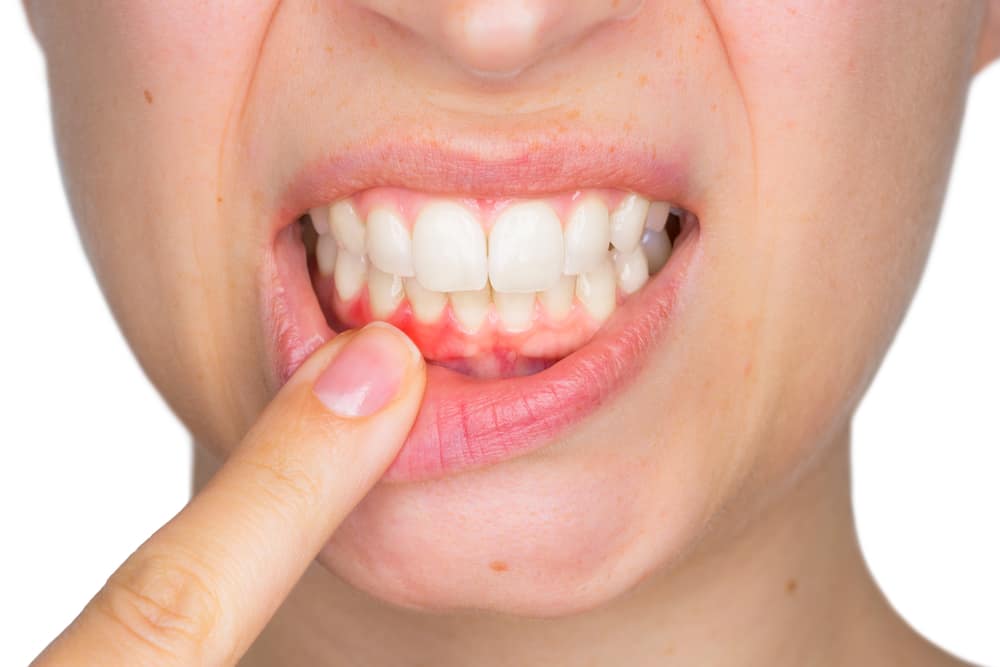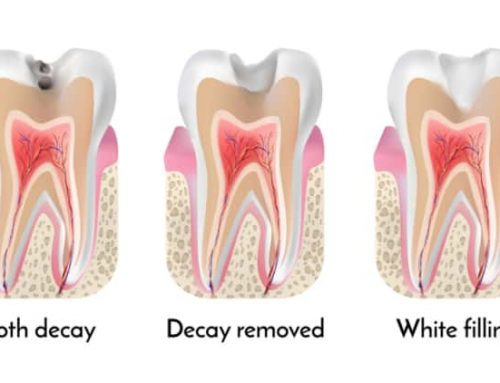
What Is Gum Disease?
Gum disease also known as periodontitis occurs when there is an infection of the gum tissue that holds your teeth in place due to poor brushing and flossing habits that allow bacteria and plaque to harden on the teeth, causing severe inflammation (gingivitis).
If you think you might have gingivitis, or worse, periodontitis, then you should contact your Keller, TX dentist immediately by calling (817) 431-5514.
Signs of Gum Disease
Did you know more than 50% of people suffer from gum disease and don’t even know it?
That’s right. Periodontitis can be painless and without noticeable symptoms, causing inflammation and decay in and around your teeth. That’s why it’s important to keep up with preventative dental care and check for the following symptoms:
- Bad breath that just doesn’t leave
- Gums bleeding when brushing, flossing, or eating
- Red, swollen, and sensitive gums
- Sensitive to cold or hot temperatures (cold water / hot coffee / food)
- Teeth feeling loose or unstable
- Tooth movement or pain when chewing
- Change in how your partial dentures fit
If you notice any of these symptoms of gum disease, contact Pickett Family Dental, your Keller Family Dentist by giving us a call or through our easy-to-use online contact form to schedule your dental cleaning. If you don’t have dental insurance, be sure to check out Smile Saver and Gum Care plans that cover 2 appointments per year with a discount!
What Causes Gum Disease
Plaque is the main cause of gum disease and builds up in unclean mouths that aren’t brushed and flossed regularly. It begins causing inflammation (gingivitis) and becomes periodontitis once the gums become infected.
Types of Gum Disease
Gum disease is a progressive infection of the gums that can persist into causing more intense symptoms including gum detachment, bone destruction, and heart disease.
Gingivitis
Gingivitis is the mild precurser to periodontal disease. It causes gums to swell, turn red, and bleed at the slightest irritation such as when brushing, flossing, or chewing tough foods. There is usually little to no discomfort with gingivitis until it progresses into periodontitis.
Contributing factors include:
- improper dental care
- poor nutrition
- genetic predisposition
- health issues
- medications
- diabetes
- smoking
- age
- hormone changes
- pregnancy
To best prevent gingivitis from occurring, brush properly twice a day for the full two minutes and floss daily.
Periodontitis
If gingivitis is allow to progress to its’ advanced form periodontitis. What happens at this stage is that plaque grows below the gum line (ew!), separating the gums and allowing toxins from the bacteria in plaque to stimulate an inflammatory response that leads to the destruction of their teeth. The short version of what happens next, is you will lose your teeth and the gum tissue will be destroyed and rot out around them.
If all this doesn’t scare you, we’re not sure what will. We do however request that you take care of your oral hygiene before you ever get to the even worse stages of periodontitis.
People that have a disposition to certain types of periodontitis that can progress rapidly should get treated immediately and checked often for the following:
- Aggressive periodontitis
- Chronic periodontitis
- Systemic periodontitis
- Necrotizing periodontal disease
How to Prevent Gum Disease
Regular and proper brushing and flossing of the teeth and gums can greatly reduce the opportunity for plaque to build up and cause inflammation or gum disease. Removing dental plaque is the key to preventing any form of gum disease.
Get Your Gums Checked For Gum Disease
Dr. Pickett, your Keller TX dentist and our amazing hygienists are always happy to take a look at your gums during each dental cleaning to ensure that your gums don’t show sign of gingivitis or periodontitis, the leading causes of gum disease in children and adults. Simply call our dental office at (817) 431-5514 to schedule your next teeth cleaning and exam where we always check for gum disease!



